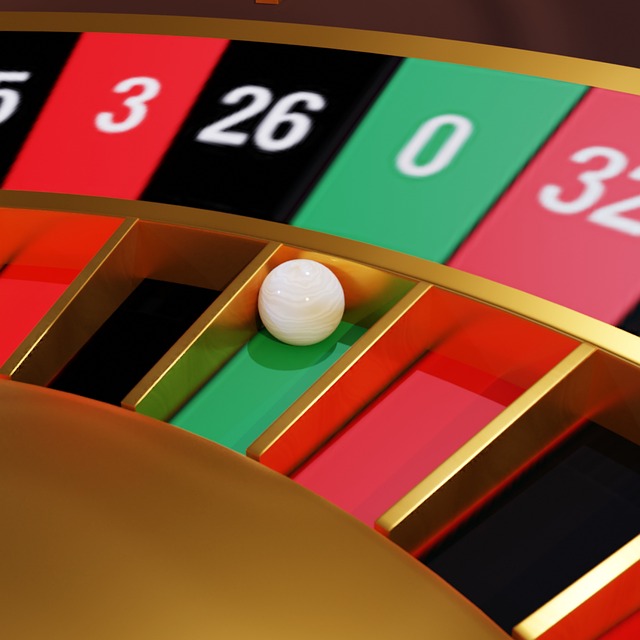The Psychology of Betting Streaks in Roulette
As the iconic roulette wheel spins, the tension builds in the air of the casino. Players watch with bated breath as the ball bounces around the wheel, hoping it lands on their chosen number. Roulette is a game of chance that has captivated gamblers for centuries, offering the thrill of a big win with each spin. But what drives players to make decisions when placing their bets? How does psychology play a role in the streaks that can occur during a game of roulette?
The Gambler’s Fallacy
One of the most common psychological phenomena in gambling is known as the gambler’s fallacy. This is the belief that if a certain event has happened more frequently in the past, it is less likely to happen in the future, and vice versa. In the context of roulette, this could manifest as a player betting on red because black has come up several times in a row, believing that red is “due” to come up next.
However, the reality is that each spin of the roulette wheel is an independent event, with the outcome not influenced by previous spins. The wheel has no memory, and the odds of each outcome remain the same regardless of past results. This cognitive bias can lead players to make irrational decisions based on perceived patterns that don’t actually exist.
The Hot Hand Fallacy
Conversely, the hot hand fallacy is the belief that a player on a winning streak is more likely to continue winning in the future. In roulette, this could lead a player to increase their bets after a series of wins, thinking that the streak will continue indefinitely.
While streaks can and do happen in roulette, they are purely random and do not indicate any inherent skill or ability on the part of the player. The outcome of each spin is determined by chance alone, and previous wins or losses have no impact on future results. Falling victim to the hot hand fallacy can lead players to overconfidence and reckless betting, risking significant losses in the process.
The Role of Emotions
Psychological factors such as emotions also play a significant role in betting behavior in roulette. The thrill of the game, the adrenaline rush of placing a big bet, and the euphoria of a win can all influence a player’s decision-making process. Emotions can lead to impulsive decisions, such as chasing losses or betting more than planned in the heat of the moment.
Additionally, losses in gambling can trigger negative emotions such as frustration, anger, and disappointment. This can lead players to make irrational decisions in an attempt to recoup their losses, a phenomenon known as chasing losses. Psychologically, this can create a vicious cycle of increasing bets to try and recover previous losses, often resulting in even greater losses in the long run.
Questions and Answers
- Q: How can players avoid falling victim to cognitive biases in roulette?
- A: One way is to remember that each spin of the wheel is independent and not influenced by past results. Sticking to a predetermined betting strategy can help mitigate the impact of cognitive biases.
- Q: What is the best approach to managing emotions while playing roulette?
- A: Setting strict limits on betting amounts, taking breaks to cool off, and practicing mindfulness techniques can help players stay focused and in control of their emotions.
Managing Risk in Roulette
When it comes to betting in roulette, it’s important for players to understand the inherent risks involved and approach the game with a sense of caution. While the game can be exciting and potentially profitable, it is ultimately a game of chance with odds stacked in favor of the house.
Developing a sound betting strategy based on sound principles of probability and risk management can help players make more informed decisions and minimize losses. Setting limits on betting amounts, sticking to a budget, and knowing when to walk away are all key components of responsible gambling.
Table: Comparison of Betting Strategies
| Strategy | Pros | Cons |
| Martingale | Potential for quick wins | High risk of substantial losses |
| Labouchere | Structured approach to betting | Complex and requires careful planning |
| D’Alembert | Gradual progression of bets | May not be effective in the long run |
Conclusion
The psychology of betting streaks in roulette is a fascinating subject that delves into the depths of human behavior and decision-making. Understanding the cognitive biases and emotional factors that can influence betting decisions can help players make more informed choices and enjoy the game responsibly.
By staying mindful of the risks involved, managing emotions effectively, and following a sound betting strategy, players can enhance their overall experience and maximize their chances of success. Ultimately, roulette is a game of chance that should be enjoyed in moderation, with a healthy dose of caution and respect for the probabilities at play.







